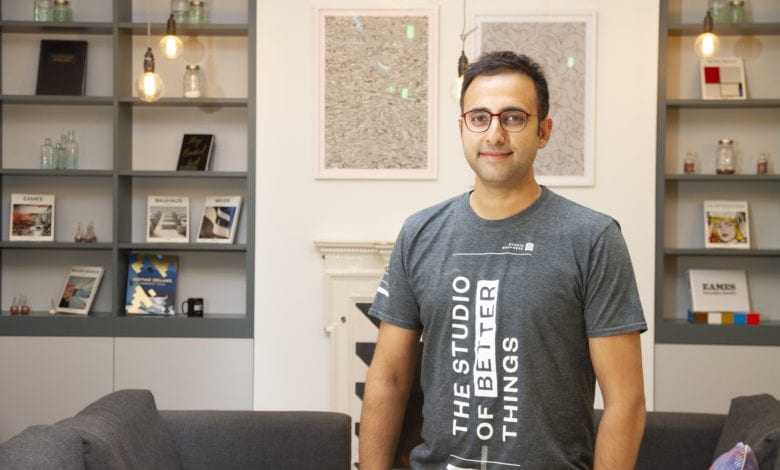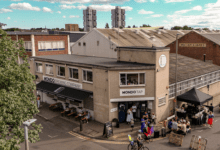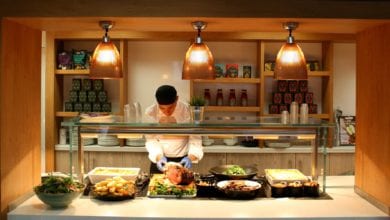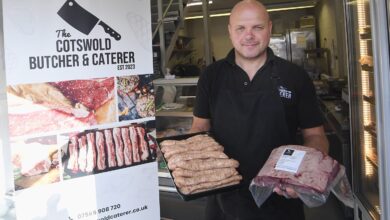
No industry has escaped the wrath of COVID-19, but the hospitality sector has arguably faced the brunt of the virus’ shockwaves.
If we are to focus on the silver lining, however, it is that cafés, bars and restaurants alike have been able to demonstrate their remarkable ingenuity as they adapt to a new and unusual set of circumstances.
The public health crisis has prompted most (if not all) businesses to re-evaluate their digital journey. The majority have readily embraced consumer-facing food technology (foodtech) to ensure that their business model holds up in the evolving landscape. New technologies have been developed and deployed to help businesses adjust their offering and improve their customer service.
As consumer behaviour evolves, businesses must continue to keep abreast of the latest industry trends and consider how they can innovate accordingly. With this in mind, how can business leaders utilise the lessons already learned from the pandemic to implement effective digital transformation strategies?
Lessons learned from the pandemic
It is safe to assume that COVID-19 is going to present lasting challenges. As such, businesses must be prepared to take a long-term view, and implement digital transformation strategies that will see them through the coming months and beyond.
One lesson learned is the newfound desire for a positive digital experience alongside high-quality customer service. Social distancing restrictions have driven demand for digital solutions that can facilitate orders and enable contact-free dining experiences.
The delivery sector has been an obvious beneficiary of these changes. It is likely that demand for food delivery, click and collect and at-home meal kits will endure beyond the pandemic, opening up new opportunities for businesses.
In the restaurant sector, meanwhile, the adoption of systems like QR technology and digital menus has become a new norm. But now it’s time to look farther afield and consider how else the customer experience can be improved.
As consumers get to grips with mobile technology, the scope of what such platforms can offer will no doubt broaden. Mobile ordering and payment functions are just the tip of the iceberg. Those seeking to bolster their business model for the new digital era must extend their functionality, and ensure the technology implemented will stay relevant long after there is no public health crisis to contend with.
Regardless of what the future holds, people’s basic needs won’t change. Socialising with friends and going out to eat will continue to play a central role in everyday life. So, business leaders must leverage the right solutions to create a more functional, convenient future as we make a slow return to normality.
Adopting foodtech as part of a long-term innovation strategy
New research offers early indications of how COVID-19 has changed consumer expectations. According to a recent survey, the majority (58%) of consumers now expect contactless payments; meanwhile, people are now more likely to pre-book visits to pubs, bars and restaurants.
It is critical for businesses to have the right digital tool in place to cater to these demands. With safety emerging as the chief concern, technologies that can facilitate contactless payments will become an obligation. In the future, however, we will move beyond the ‘tap and go’ functionality that many have now already become accustomed to. Options such as invisible payments, whereby customers don’t have to actively pay for their purchase (as is the case with Uber fares), will no doubt soon become the norm.
Businesses should also look to leverage apps that can accommodate all the necessary functions in one platform, eliminating the hassle of downloading multiple apps for each step of the journey. Companies must be able to facilitate easy order and pay functionalities, as well as seamless table service, to ensure that the dining experience does not become fragmented by unnecessary tech.
What’s more, business should start think about how they can curate a more personal dining experience as customers become more heavily reliant on technology. Smartphones don’t have to take the enjoyment and sociability out of the experience – if used effectively, they can actually add a personal touch. For instance, they could customise online menus to cater to individual tastes, or anticipate when regular customers will be planning a special occasion (a birthday, for instance) and deliver bespoke rewards.
Another trend that businesses will not doubt have noticed is the reduction in spontaneity. Whether by personal choice or due to COVID restrictions, diners are now much more likely to have pre-booked their meals, which makes reservation procedures all the more important.
Restaurants, bars and cafes can take advantage of this boom in planned occasions by creating a hassle-free online booking service. The burden of having to call a restaurant to reserve a table, or else inquire in person, is firmly a thing of the past. Forward-thinking businesses must take steps to ensure that when things return to normal, customers can be assured of quick and easy bookings.
Effective delivery management software must now also sit firmly at the heart of any progressive business model. At Studio Graphene, for instance, we recently worked with Rout’d to create a web portal that was built to last. To stand the test of time, the platform is integrated with features like proof of delivery, live ETA’s and route optimisation algorithms – key perks that users will be on the lookout for going forward.
Planning for the future
Above all, I would encourage businesses to keep things simple. Those building their own app or website, must ensure it does exactly what it says on the tin – whether enabling people to place an order, or pay through their mobile. Anything more can detract from the logical flow and complicate the user experience.
For those that lack the technical know-how, help is on hand. There are plenty of accessible solutions on the market, and businesses can also seek the expertise of third-party providers to assist them in designing and building the rights tools for restauranteurs’ specific needs.
Although significant progress has already been made, hospitality is not out of the woods just yet. Many of the technologies leveraged to date will have long-term significance as we navigate the new landscape. I encourage businesses to integrate digital solutions not only for the sake of their immediate recovery plans, but also as a means of reinforcing their business for the digital future.
Ritam Gandhi, is the Founder and Director of Studio Graphene – a London-based company that specialises in the development of blank canvas tech products including apps, websites, AR, IoT and more. The company has completed over 100 projects since first being started in 2014, working with both new entrepreneurs and product development teams within larger companies.













